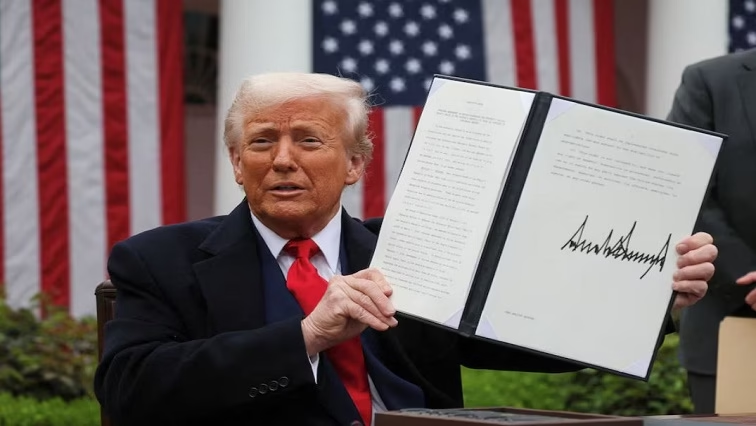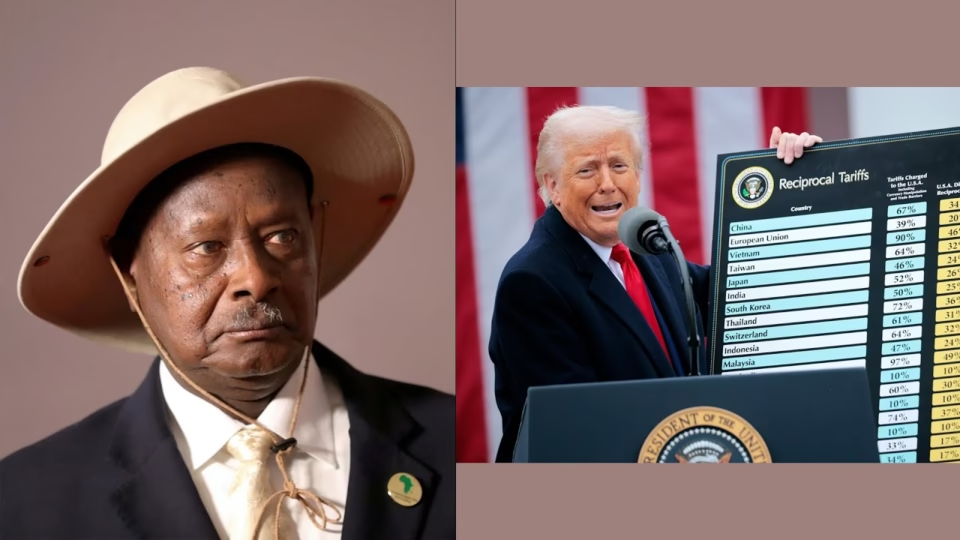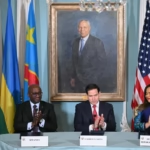Ugandan businesses that trade with the United States are facing a major setback. A new executive order signed by U.S. President Donald Trump has imposed a 15% tariff on all Ugandan exports to America — a move that could cost the country millions and impact thousands of livelihoods.
The order, which takes effect in just seven days, targets 69 countries with tariffs ranging from 10% to 41%, part of a broader effort to “rebalance global trade,” according to the Trump administration.
For Uganda — whose key exports to the U.S. include coffee, vanilla, fish, and fresh produce — the new tariff piles more pressure on an already struggling sector.
“We were already struggling after AGOA was suspended last year. This just makes it even harder to survive
Uganda exported over $140 million worth of goods to the U.S. in 2023, making America its second-largest export market outside Africa. But with higher costs and tighter margins, many businesses may find it difficult to compete.
“Ugandan products like vanilla and coffee already face tough competition. A 15% tariff only makes things worse
Uganda is not alone. Other countries hit by the new tariffs include:
- India (18%)
- United Kingdom (10%)
- Taiwan (22%)
- South Africa (17%)
- Syria (41%)
- Kenya (16%)
- Ethiopia (15%)

The U.S. government argues these tariffs are a response to what it sees as unfair barriers to American exports
The new tariffs follow the U.S. suspension of Uganda’s AGOA (African Growth and Opportunity Act) benefits in January 2024, citing human rights and governance concerns.
“We used to sell more, faster. Now, buyers are hesitant, orders have dropped, and profits are down,
AGOA had previously allowed many Ugandan products to enter the U.S. duty-free, helping small and medium businesses grow. Its suspension, followed by this new tariff, is a double blow.
Experts say these developments signal a larger shift in U.S. trade strategy — from development-driven partnerships to a more protectionist and transactional model.
“It’s no longer about preferential access. Uganda needs to improve quality, reduce costs, and diversify
Ugandan officials say they are assessing whether the new tariff violates World Trade Organization (WTO) rules, but stress the urgency of finding alternative markets.
“We’re talking about people’s livelihoods — farmers, workers, exporters. We’re doing all we can to protect them
With pressure mounting, trade experts are calling for rapid market diversification, especially into Asia, the European Union, and the African Continental Free Trade Area (AfCFTA).



